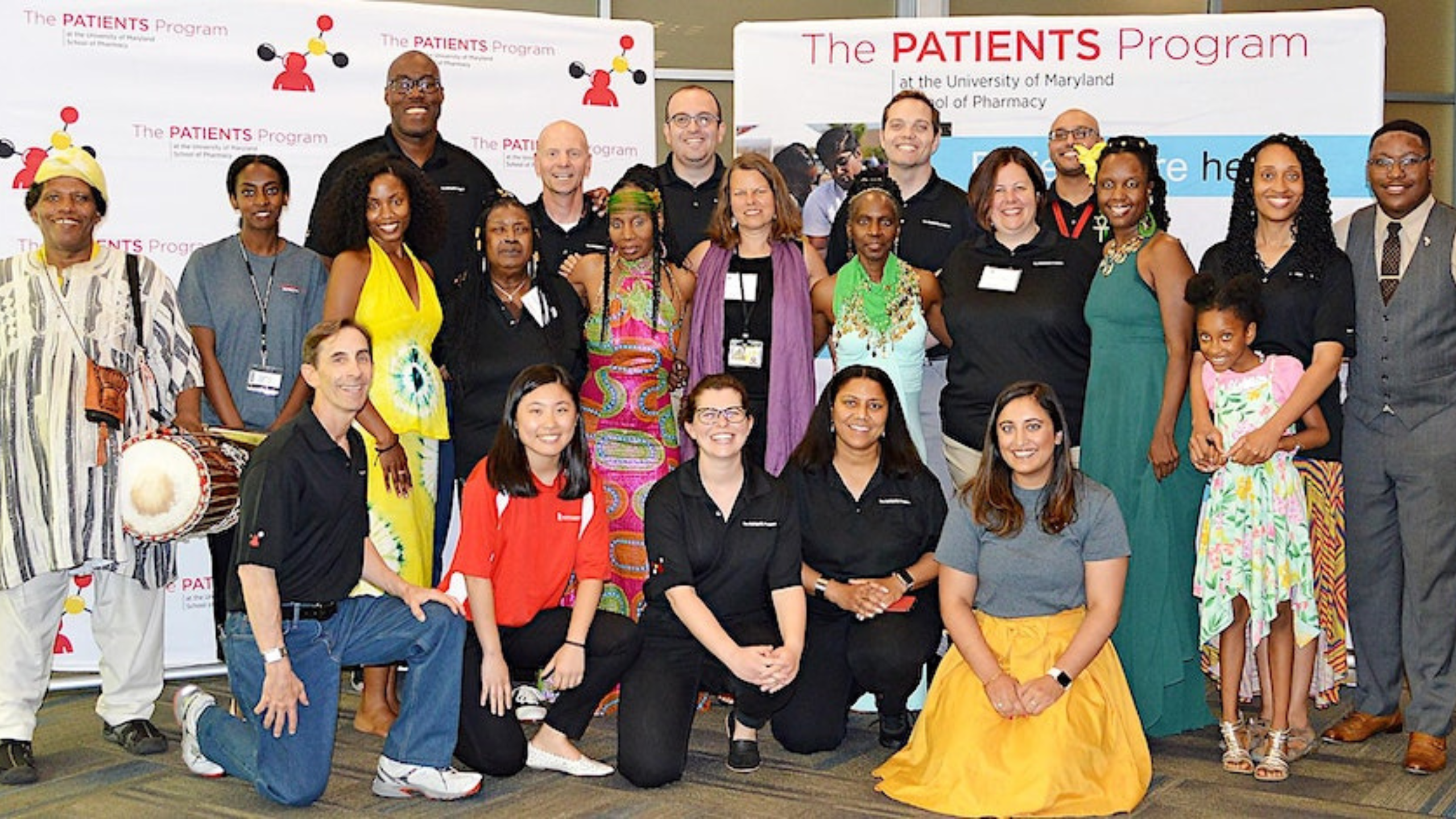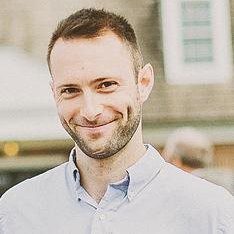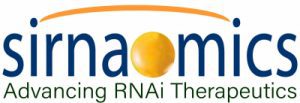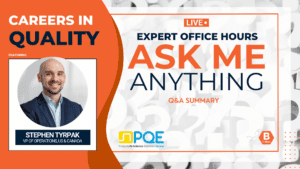
UMB PATIENTS Day Program Hopes to Help Build Trust in Clinical Research Activities
October 13 PATIENTS Day event invites community members from Baltimore to see how researchers co-develop research with the community and will showcase real-world connections to advance research
By Sam Hopkins | October 5, 2023
| BioBuzz has been building life science communities for 14 years because we believe in the power of personal networks to unlock your career potential. For our next chapter, we’re building upon the success of our community to help solve today’s greatest challenges in hiring and career development. There is a better, more equitable way to connect talent with opportunity… and we’re building it. |
I’ve been in Baltimore a lot longer than I ever thought I would. I followed love here, found work, lost love, lost work, had kids, found community… and suddenly I’m in the middle of my career and think I’m a pretty happy guy. I’m a Midwesterner in the Mid-Atlantic, always feeling somewhat like a foreigner, but I’m always fascinated and interested in the tight communities and closely connected cities of this region.
The brain and heart of what I now know professionally as the BioHealth Capital Region are huge reasons I’ve stuck around and a fantastic example of human and institutional energy coming together in a positive way is the University of Maryland School of Pharmacy’s PATIENTS Program, led by Executive Director C. Daniel Mullins, Ph.D.
The PATIENTS Program made the front page of the Baltimore Sun last week for its new funding to help diversify clinical trial participation not only in Baltimore but around the world. As the Sun reported, the FDA’s Office of Minority Health and Health Equity awarded $500,000 to the PATIENTS Program to build a consortium with Mt. Lebanon Baptist Church, along with Coppin State and Xavier (in New Orleans) universities.
I have served as a Community Advisory Board member of the program for two grants related to diagnostic and vaccine access in West Baltimore communities since 2021. More than anything–and a huge reason why I’m passionate about the work BioBuzz does to connect the dots of community, career, and companies–I want the world to know that this region is breaking ground in meaningful, long term advancement of research that will improve outcomes for patients around the world.
The PATIENTS Program is building on research topics that are proposed by patients and community members themselves. It is not acceptable or desirable that 10% of the clinical trials participants for key COVID-19 vaccines were African-American, despite that group being twice as likely to die from the disease than white Americans. The nationwide hyperfocus on scientific research that came in the desperation and confusion of the pandemic illustrated a longstanding reality of underrepresentation of people of color in clinical trials for emerging medications and therapies, as the Sun reported. Still, there is more to the story of what the PATIENTS program is doing, what its history and reach are, and what the future could hold.
Making Community Deposits of Trust
For readers of BioBuzz, especially leaders, it is important to understand that the next step in a more constructive future is yours to take, and progress is emanating from right here in the region, with fundamental strengths and brainpower at all levels of our local communities that might go unexplored and underappreciated by biotech leadership. Here you’ll read more detail about the PATIENTS Program and how you can be involved, namely with the PATIENTS Day on October 13.
The event on the University of Maryland-Baltimore campus in the Community Engagement Center adjacent to the UMB BioPark will feature three Baltimore authors talking about mental health in the community. As trust is a currency that can be exchanged, community leaders in the program urge corporate leaders to make deposits before they make withdrawals, i.e. when those companies need community member participation in their business-related activities.
“When I travel the country,” Dr. Mullins reflects, “people say, ‘It must be really hard to do research in Baltimore.’ They say this because of how they perceive the reality of Baltimore. The reality is, while there is a lot of mistrust and distrust in research in our city, residents of Baltimore are probably more educated about research than residents of most places in the United States.
“So, one way of looking at this is that those high levels of distrust and mistrust need to be addressed. That’s what the PATIENTS Program is trying to do by saying, ‘Let’s have an honest conversation about things that have happened historically or that are still happening today.’ Sometimes, the conversations are hard, but we don’t face the same challenges that people might face in other parts of the country, where individuals don’t even know what research is about. So even if you are aware of bad things that have happened in research, I can have a conversation with you about that because you’re informed as a patient about something that happened twenty years ago or something that happened last week I can say, ‘Okay, let’s talk about that and let’s talk about some of the new laws and policies that are in place to prevent those atrocities from ever happening again.’
“One of our studies recently really shined the light on the fact that it’s a myth that minority communities don’t want to participate in research. The truth is that there are things that have happened in those communities that make people mistrust and distrust researchers, but if you address those concerns and you build trust, there’s actually quite a number of people who would like to participate in research if they understand what the research is about–if the researchers are transparent about the potential benefits and the potential harms and if the research is convenient for participation. And so what we suggest is that instead of focusing on trying to get patients to trust you, you should focus on changing how you do research so that it’s trustworthy, so that it’s transparent, and so that people understand what the research is all about. If they understand the research question and they find it to be interesting then a lot of people will want to participate and help to answer that question.”
SH: What is unique about the way the PATIENTS Program Interacts with the Baltimore community?
DM: I would say our success is largely attributable to the amazing patients and community leaders with whom we work, but I also give a lot of credit to our campus president and to the deans of our schools who embrace and support our work. Any great idea can only materialize if you have support from leadership. We work hard to make sure that community leaders and campus leaders know what we are doing. Everything we do is patient-centered. That means sitting down and really listening to what patients have to say and not every institution is willing to take the time to listen. I feel fortunate to work for an institution whose mission is to improve the human condition.
SH: What are the opportunities for people who want to take part in this effort to expand understanding and access to what research is all about and what it can do?
DM: “Friday, October 13th, 2023 is our annual PATIENTS Day event, which is a day where we invite community members from Baltimore, our university and anyone else who wants to come in and see how we co-develop research with the community. Part of the program is talking about research and part is talking about health conditions but we also want people to have fun. This year, we’re focusing on mental health conditions. We’re talking about mental health as it relates to physical health, financial health, and spiritual health. For those who want a more intensive experience, we offer a free 5-week training program each summer called the PATIENTS Professors Academy. The idea stems from the fact that we’ve learned from patients and our community leaders, so these individuals we now call PATIENTS Professors to respect that they are our teachers. These PATIENTS Professors teach alongside us in the PATIENTS Professors Academy each summer.
SH: How can leaders adopt the mindset to build trust as effectively as possible?
DM: “If we’re going to build trust, we need to acknowledge that patients are the only ones who have expertise in what it’s like to live with their diseases. We’ve got to be open to the fact that bright as company leaders are, if we really want to build trust with patients, we need to let them lead and we need to follow their advice.”
To learn more about the PATIENTS Program and the October 13 PATIENTS Day events, click here.
- About the Author
- Latest Posts
Sam Hopkins has spent the past decade in the Baltimore area life-science and healthcare ecosystem, including roles at Johns Hopkins, the University of Maryland, the U.S. Army, and early-stage companies. He spent the previous decade as a journalist, which saw him cover everything from clean energy conferences in Morocco, to Soviet-era Estonian rock’n’roll, to trailblazing CEOs in Timonium. Sam is an avid athlete and coach, and he lives with his wife and two sons in Baltimore’s Oakenshawe neighborhood. You can often find him around town spinning records as DJ Balagan, or performing in musical groups Sink and South of Boundary.






